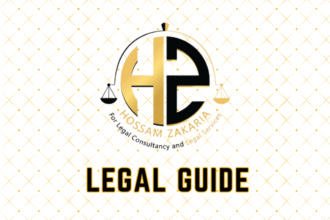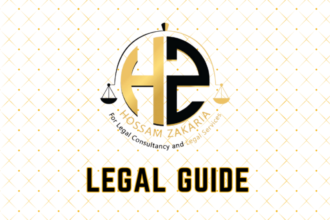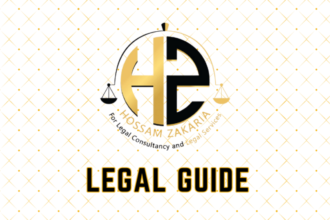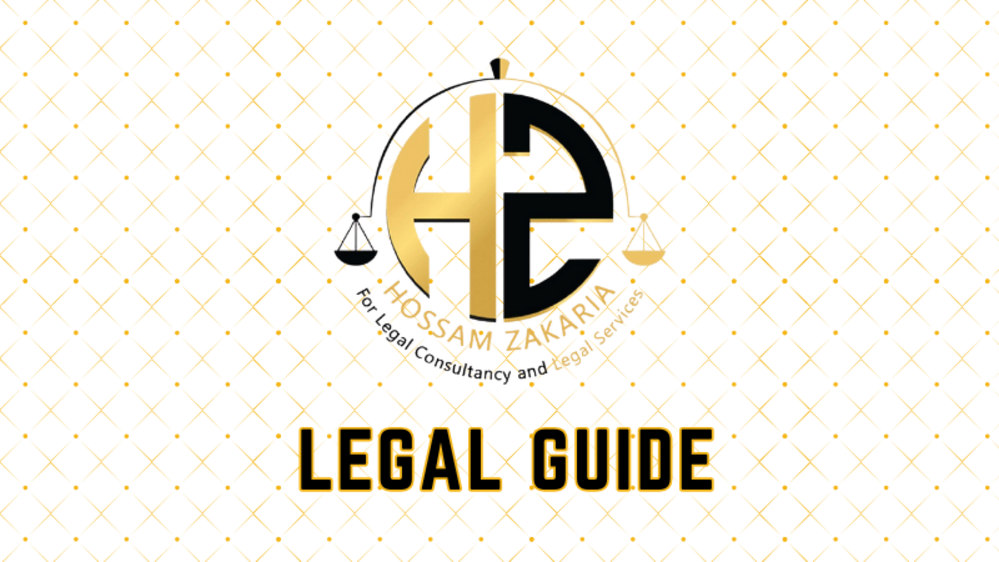Introduction: Understanding Saudi Aviation Law Reforms and Their UAE Impact
Saudi Arabia’s ambitious legal transformation, especially within its aviation sector, is redefining the regulatory landscape across the Gulf. The recently enacted Kingdom of Saudi Arabia Civil Aviation Law (Royal Decree M/91, October 2023) introduces comprehensive reforms that directly and indirectly affect businesses in the UAE—especially those engaging in air transport, logistics, aerospace, and connected industries. As the Gulf’s commercial and regulatory environment shifts towards greater harmonisation and compliance with global best practices, understanding these developments is not only prudent, but vital for UAE executives, legal practitioners, HR managers, and aviation stakeholders.
This in-depth analysis deciphers the new Saudi aviation law and explores its extensive implications for UAE businesses. Drawing on the latest official sources from the UAE Federal Legal Gazette, Ministry of Justice, and regional authorities, we provide clear guidance, real-world insights, and compliance strategies. Our objective is to empower UAE organisations to proactively adapt, mitigate risks, and seize cross-border opportunities in this newly harmonised environment.
Given recent federal decree modifications and updates within UAE law—such as Federal Law No. 5 of 2022 regarding the Regulation of Civil Aviation, and emerging compliance standards—staying informed is crucial for any business engaged in Saudi-UAE aviation or logistics corridors. This article offers a consultancy-level advisory, ensuring you remain ahead of legal developments and regulatory risks while leveraging new growth prospects.
Table of Contents
- Saudi Aviation Law Reform Overview
- Key Provisions of the New Saudi Aviation Law
- Practical Impact on UAE Businesses
- Comparative Law Analysis: Saudi vs. UAE Aviation Law Updates
- Case Studies and Hypotheticals
- Risks of Non-Compliance in the New Legal Landscape
- Compliance Strategies for UAE Entities
- Conclusion and Future Outlook
Saudi Aviation Law Reform Overview
The Saudi Council of Ministers and regulatory bodies, seeking to modernize and position Saudi Arabia as a leading aviation hub, promulgated the Civil Aviation Law by Royal Decree M/91 (October 2023). The reforms revolve around raising aviation safety standards, aligning with International Civil Aviation Organization (ICAO) frameworks, and enhancing market access for regional and global operators. This overhaul is part of the Saudi Vision 2030 initiative, targeting exponential industry growth and increased foreign investment.
Noteworthy in these reforms is their extraterritorial impact: many provisions apply to foreign carriers, service providers, and supply chain partners operating within or in association with the Kingdom. The Saudi General Authority of Civil Aviation (GACA) now wields expanded regulatory and enforcement powers, which impact all cross-border operators, including numerous UAE-based enterprises.
For UAE companies, especially those capitalizing on the strategic Jeddah-Dubai and Riyadh-Abu Dhabi corridors, these changes necessitate rigorous legal review and operational alignment to preclude compliance or licensing disruptions.
Key Provisions of the New Saudi Aviation Law
Licensing and Market Entry
The law codifies a more robust licensing regime. Airlines, ground handlers, maintenance providers, cargo logistics firms, and aircraft lessors—whether local or foreign—must comply with updated registration, safety, and operational certification rules. GACA evaluates not merely the airline’s principal place of business, but also effective management location and proof of substantial ownership, echoing standard ICAO practices but with stricter document verification and compliance timelines.
Safety, Security, and Continuing Airworthiness
Safety oversight is intensified, with stipulations mirroring ICAO Annex 6 and 19. Operators must maintain comprehensive Safety Management Systems (SMS), report incidents in a timely manner, and undergo scheduled and unscheduled audits. Aircraft must comply with continuing airworthiness requirements akin to EASA Part M standards, and operators are liable for ensuring that all maintenance activities are performed by certified personnel.
Consumer Protection and Passenger Rights
Building on global standards, Saudi law enshrines passenger compensation, clear grievance mechanisms, and transparent ticketing practices. Carriers must provide accessible information, fair contract terms, and robust claims procedures—posing new operational requirements for UAE-based operators servicing Saudi routes.
Foreign Operator Obligations
Foreign operators—including those headquartered in the UAE—must fulfill additional registration and notification responsibilities, and demonstrate compliance with Saudi technical and insurance requirements. GACA holds power to temporarily or permanently bar operators failing to meet obligations, even for third-party breaches (like subcontractor non-compliance).
Environmental and Data Regulations
Environmental sustainability is built into the regulatory framework, with incentives for ‘green’ operations and mandatory adherence to carbon reporting. Moreover, cross-border data sharing for passenger and cargo manifests falls under new protocols, with explicit requirements for data sovereignty and retention.
Practical Impact on UAE Businesses
Compliance for Supply Chain and Logistics Firms
UAE-based logistics companies, freight forwarders, and warehouse operators integrated into Saudi supply chains must now review their licensing status, safety training records, and data-reporting infrastructure. Failure to provide comprehensive documentation or to register service entities with GACA may result in denied market access, physical cargo detainment, or administrative penalties.
If your UAE business delivers last-mile logistics for Saudi air freight, for instance, you may be classified as a ‘foreign ground service provider’—necessitating not only registration but also periodic training audits and evidence of Saudi-accepted insurance policies.
UAE Airlines and Aviation Service Firms in Saudi Arabia
UAE-registered airlines or lessors, including those operating code-shares, must navigate double compliance—coordinating updates to both UAE Federal Law No. 5 of 2022 and new Saudi requirements. In practice, this means harmonizing safety, technical manuals, and emergency protocols. Example: A Dubai-based airline flying to Riyadh must document GACA acceptance of its Air Operator Certificate (AOC) and ensure ground crews meet Saudi-approved safety and airworthiness training thresholds.
Data and Cross-Border Information Transfer
Saudi law now mandates data localization for certain aircraft and passenger records, meaning that UAE businesses transferring crew details, manifests, or security information must ensure they adhere to both Saudi and UAE data protection statutes. This is especially relevant for flight planning SaaS providers or passenger data processors handling both UAE (compliant with Cabinet Resolution No. 21 of 2022 on Data Protection) and Saudi requirements.
Consultancy Insight: UAE entities must implement data mapping and risk assessments to guarantee no breaches of overlapping data transfer legislation, and should launch joint compliance projects with Saudi partners where possible.
Comparative Law Analysis: Saudi vs. UAE Aviation Law Updates
There are both points of convergence and divergence between the new Saudi aviation regulatory landscape and current UAE law. Below is a comparative summary, highlighting areas where legal teams must pay close attention:
| Feature | Saudi Civil Aviation Law (2023) | UAE Federal Law No. 5 of 2022 | Consultancy Takeaway |
|---|---|---|---|
| Licensing & Market Entry | Expanded GACA authority, frequent audits, local office required | GCAA approval, with option for remote certification | UAE firms must consider dual office and regulatory structures |
| Safety Management | Mandatory SMS, root-cause incident reporting to GACA | SMS under GCAA oversight, reporting mechanisms per ICAO | Process harmonization is essential for operators in both jurisdictions |
| Passenger Rights | Formalized compensation; complaint timelines fixed by regulation | UAE Cabinet Resolution No. 21/2022 sets out passenger rights | Review complaint/bookings workflows for cross-border compliance |
| Data Protection | Strict retention and localization for Saudi passenger data | Obligation to safeguard and localize data in the UAE; consent required | Evaluate and update data handling policies and supplier SLAs |
| Environmental Standards | Mandatory emissions reporting, sustainability incentives | Voluntary sustainability tiers, GCAA-led sustainability roadmap | Proactive carbon compliance creates future opportunity |
Visual suggestion: Compliance Matrix Diagram or Infographic Chart
Case Studies and Hypotheticals
Case Study 1: UAE Cargo Company Facing New Registration Obligations
A Dubai-based cargo operator handling shipments between Dubai and Dammam did not register its GCC-wide subsidiary with GACA under the updated rules. Upon an unannounced audit, GACA suspends all ground handling activities by the UAE branch in Saudi territory. The operator incurs demurrage costs and contracts penalties, and must scramble to realign its compliance, including localizing certain employment contracts under Saudi law.
Case Study 2: Data Transfer Dilemma for an Aviation SaaS Provider
A UAE-headquartered flight operations software provider enables both Emirates and Saudi carriers to sync flight manifests. The Saudi partner requests local Saudi hosting of passenger manifests, in line with data localization regimes. The company navigates a dual compliance project, onboarding a Saudi IT partner and updating its privacy policy to reflect both Saudi and UAE data law requirements.
Hypothetical Example: Code-Share Airline Partner
An Abu Dhabi-based airline enters a code-share with a Saudi carrier. To lawfully operate, it updates crew training records so that both GCAA and GACA standards are satisfied, reviews insurance coverage for all operating sectors, and implements quarterly compliance training for HR staff—mitigating the risk of grounding due to technical or documentation failures.
Risks of Non-Compliance in the New Legal Landscape
The consequences of non-compliance in the post-reform era are measurable and significant. These range from administrative fines to business disruptions. Organizations operating on both sides of the Gulf must proactively review risk exposure and implement robust controls.
| Risk Area | Potential Penalty (Saudi Law) | Potential Penalty (UAE Law) |
|---|---|---|
| Operating without valid Saudi registration | Suspension, revocation of license, fines up to SAR 5 million | Restrictions under UAE GCAA Circulars; financial penalties |
| Failure to report safety incidents | Regulatory investigation, license suspension, public censure | GCAA disciplinary action, reportable to international bodies |
| Data handling violations | Blocking of operations, data access suspension | Fines per Cabinet Resolution No. 21/2022; reputational harm |
| Passenger rights breach | Direct compensation, consumer actions, possible flight grounding | Mandatory mediation and regulator oversight |
Visual suggestion: Compliance Risk Heatmap
Compliance Strategies for UAE Entities
Legal Audit and Gap Analysis
Begin with a bilingual legal compliance audit covering both UAE and Saudi legal regimes, focusing on operational, HR, and data practices. Leverage UAE Ministry of Justice publications and Saudi GACA guidelines to create a checklist tailored to your operational footprint.
Dual Certification and Training Programs
Provide ongoing technical and legal compliance training for crews, managers, and HR, ensuring all documentation is kept up to date. Adopt digital tools for evidence-tracking of certifications recognized by both UAE and Saudi regulators.
Contract Management Review
Reassess all cross-border contracts, especially those covering supply-chain logistics partners, customer service delivery, or SaaS providers. Update all relevant service level agreements (SLAs), insurance terms, and indemnification provisions to avoid liability gaps between Saudi and UAE legal frameworks.
Data Compliance Program
Undertake a thorough mapping of personal and operational data flows between UAE and Saudi environments. Collaborate with IT and legal counsel to ensure adherence to both Saudi data localization and UAE Cabinet Resolution No. 21/2022 on data protection. Suggest placement of flowchart diagram illustrating compliant data transfer processes.
Proactive Regulator Engagement
Establish lines of communication with both UAE GCAA (General Civil Aviation Authority) and Saudi GACA, keeping abreast of regulatory updates and best-practice advisories. Attend joint industry forums when possible to strengthen your compliance posture and gather intelligence on enforcement trends.
Conclusion and Future Outlook
The reformed Saudi aviation law signifies more than a domestic regulatory pivot; it is part of a region-wide drive for harmonisation, transparency, and competitiveness across the GCC aviation sector. For UAE businesses, the demands of cross-border regulatory compliance are rising, but so are new opportunities for market growth, investment, and operational excellence.
By proactively aligning with the updated legal frameworks—notably Saudi’s Royal Decree M/91 (2023) and the UAE Federal Law No. 5 of 2022—UAE entities can not only avert costly risks but also position themselves as regional leaders in safety, consumer rights, and sustainability. The pathway to success is paved by robust legal audits, up-to-date training, contract clarity, and a commitment to data governance.
Looking ahead, GCC-wide legal convergence is likely to accelerate, especially as joint digital customs and aviation initiatives roll out. UAE organizations that invest in future-proof compliance functions will continue to thrive in a dynamic, opportunity-rich environment.
Professional Insight: Engage with specialized legal counsel and compliance experts regularly to ensure your organization adapts proactively to further updates in GCC and UAE aviation law for 2025 and beyond.



